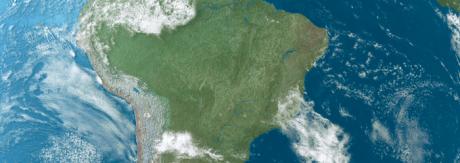
New WWF report: growth of soy protein damage rain forests
You can read about this and much more in WWF’s report about the growth and impact of soy on rain forests, species and people in especially South America.
The report is a good place to start if you wish to know more about the consequences your pork chop has on the other side of the Earth, writes WWF on their Danish website 19 January.
According to secretary-general in WWF Denmark, Gitte Seeberg, the clearing of tropical areas as a consequence of soy production is something that Danish players have to take responsibility for.
Responsibility does not stop at the border. The new report from WWF clearly states that the problem of soy which causes rain forests to be cleared in South America is too big for Danish politicians and pig breeders to ignore. It proves that a Danish pig is actually not very Danish.
The report shows how and why the area, which has been set aside for the cultivation of soy, has increased 10 fold over the past 50 years, and is expected to double again in 2050. About 46 mill. ha. and an area larger than Germany has been set aside for the cultivation of soy in Latin America. We are talking about irreplaceable nature, states Gitte Seeberg.
Follow the developments within biorefining. hveiti regularly informs about our efforts to improve the environment.
Copyright © 2011 | Hveiti | Design Rabotnik




